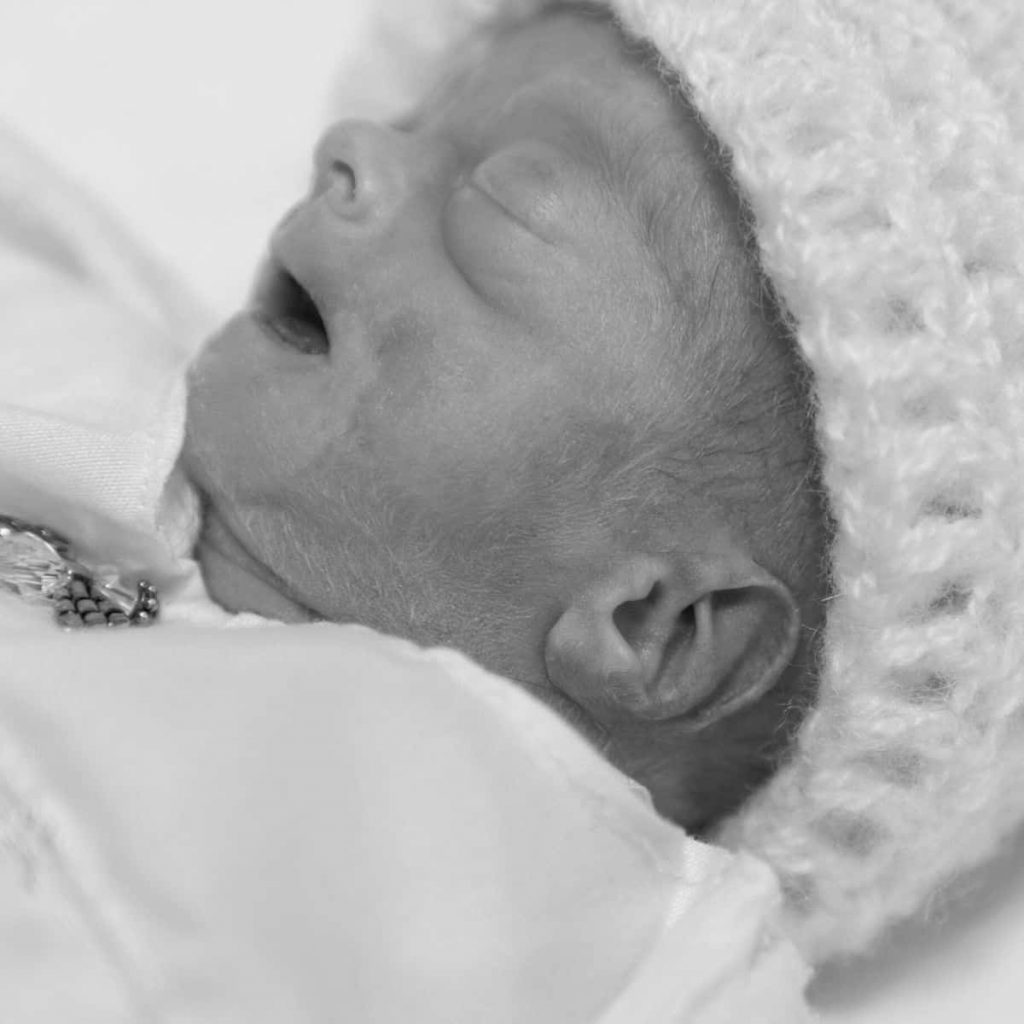I’m a huge Hamilton junkie. In fact, I’ve seen it live four times. So when my husband and I went on the first official day of parental leave, we spent the day watching the play we love so much on Disney+ and awaiting the call that our gestational carrier had gone into labor with our second child.

This site contains affiliate links, meaning that we earn a small commission for purchases made through our site. We only recommend products we personally use, love, or have thoroughly vetted.
Hamilton and the Death of a Child
Every viewing of this play has affected me differently. The first time I saw it was at a time when I had never been pregnant and we were trying to become parents.
The second time I saw it was while pregnant with Colette, when my biggest concern all day was whether my morning sickness would stay at bay long enough to actually enjoy the evening.
The remaining times have all occurred after surviving Colette’s death.

This time, watching in the comfort of our home, at a time when literally any minute, we could get the call that would initiate the process of us finally achieving our goal to bring a child home, I found myself very emotional.
Let me try and explain why.
While the premise of the production is the story of Alexander Hamilton and the story of the founding of the United States, there is also an underlying theme of death and grief.
Hamilton’s son Philip dies as a young man in a duel, leaving Alexander and Eliza to live without their son.
The gut wrenching screams of Eliza Hamilton as her son passes from this life shook me to my core.
I do not remember if I screamed those same screams out loud when Colette passed from this life, but I know that I screamed them in my head, and that some days, I continue to scream them internally.
Navigating the Unimaginable Together
The song that follows Philip’s death, “It’s Quiet Uptown,” begins with these poignant lines:
“There are moments that the words don’t reach. There is suffering too terrible to name.”
If these lines don’t encapsulate the feeling of losing your child, of living in a world where your child no longer lives, then I am not sure what is.
The song then focuses on the couple, the parents who suffered an unimaginable tragedy, two people who are forever bound together by a grief that no one else can understand.
As they held hands, I looked down and realized Mark and I were holding hands too, as I cried and shared in the grief of fellow loss parents.
I cried over the emotions of the actors who had to play those parts and try to reach an unimaginable depth to display what that grief looks and feels like.
In the two plus years since losing Colette, I have found that the only person that really gets me and that I cling to is my husband. Others can empathize or imagine what the pain is of losing a child, but my husband is the only other person who has experienced losing Colette as his daughter.
There is a bond that was formed the day she died that linked us closer in a way that defies any thought I had of what love and partnership meant.
It also means, as we are preparing for our second child, we know that the bond between us and the grief that we share together will change.
We will never get the chance to be just the two of us, grieving Colette and holding her with us in whatever way we can.
We will experience all of these triggers and markers with another child, someone who did not get to meet Colette in the traditional sense and who will need us to explain what this loss really is and how to grieve the loss of a sibling when neither of us has had to grapple with that grief.
The Unimaginable
The song calls this grief “unimaginable,” and it’s so true—it is unimaginable to think about losing a child.
Even as a woman who has lost my daughter, I sometimes feel like I am in an extended bad dream. This cannot have happened.
As soon people begin to understand the concept of death, they learn that it is natural to bury their parents, that they will outlive their parents and have to figure out how to commemorate them for future generations.
Even the line of “when our children tell our story…” from “The Story of Tonight” assumes the natural fact that children should be telling our stories, not the other way around.
And, like Hamilton and Eliza when they lose Philip, we do not understand why we are the ones to bury our children; we are the ones left to tell their story.
When we hear about so much tragedy around us–and hate, anger, despair–I think to myself that we cannot be living in a world where any baby, let alone my perfect Colette, untouched and unhardened by the world, free of sin, of bias, of hate, dies.
Pushing Away
As the song after Philip’s death continues on, the lyrics hit hard and ring true:
“We push away what we can never understand. We push away the unimaginable.”
I cannot begin to tell you how often I can see the sheer fear and discomfort on someone’s face as they hear me talk about Colette and her death, or the friends and acquaintances who buried their head in the proverbial sand and did not acknowledge her death.
Or how people did acknowledge her life and death in the beginning and then went away or hid from the confrontation of reality.
I remember when I spoke with others about one friend in particular, who seemed to run away after Colette’s memorial, and they would dismiss some of my feelings, saying, “She didn’t know what to say or do.”
My retort, usually peppered with a couple of curse words, was something along the lines of “you figure out what to do.”
I know that none of us want to live in a world where babies die, but when I lost that naivete, I needed others to not be afraid of confronting that truth.
But, I also think that prior to Colette’s death, I was unable to understand what infant loss parents experience in the same way that my friend could not wrap her head around it.
Two years before Colette was born, a friend of mine who I had not talked to in awhile reached out and shared that she had lost a child in her 28th week.
I could not believe that sometimes babies just die without warning or explanation.
Unfortunately, I ended up learning the truth and now know that we need to acknowledge and live in a reality that most people would want to push away.
Who Tells Your Story?
Hamilton ends with Hamilton’s death and his wife Eliza, along with the cast, singing “Who lives, who dies, who tells your story.”
Historically, Eliza lives longer and dedicates herself to telling her husband’s story and fulfilling his legacy.
I really feel this deep in my gut.
During my hospitalization and during Colette’s delivery, my health and safety were at risk. After I delivered Colette via emergency c-section, when my epidural wore off and they were getting ready to put me under, I honestly thought I would not wake up.
I remember thinking that Mark would be a single parent and that I would not get to see Colette grow up.
In those moments of thinking I would not survive the surgery, I knew that my husband would be able to share my story, my values, and try to parent Colette similarly to how I would have.
Instead, Colette was the one who died; I was lucky and blessed enough to survive.
The fact that I survived means that I cannot take life for granted, and I consider it my job as Colette’s mom to tell her story.
It is not fair that Colette did not live long enough to tell her story. I cannot tell you how many thousands of times I have thought I would have switched places with her without hesitation, but since we do not get to decide these things, I take it as a huge privilege and responsibility to tell her story, to create and grow her legacy and memory, as long as I am able to do so.
Until the day I draw my last breath, I will continue to recognize my privilege and responsibility as Colette’s mom and live out her legacy and memory through the Colette Loiuse Tisdahl Foundation.








